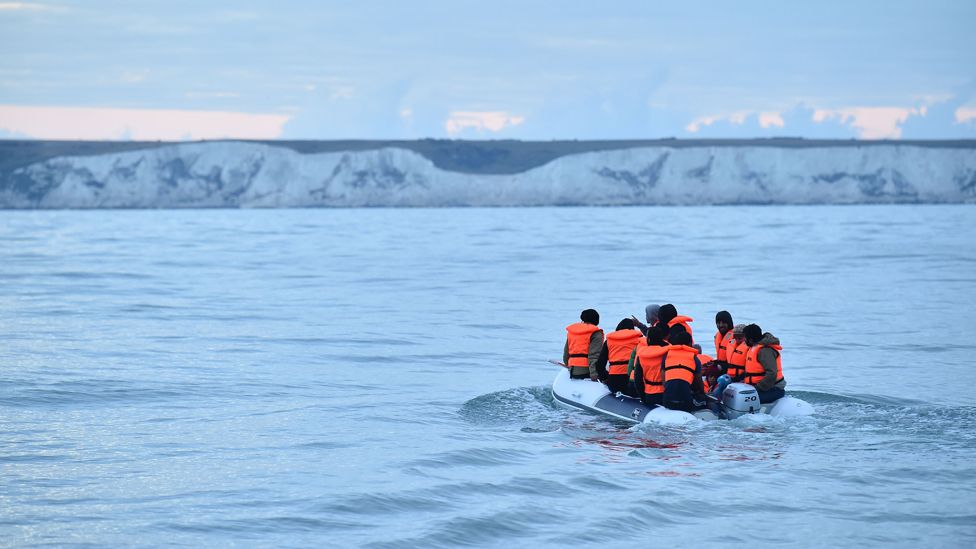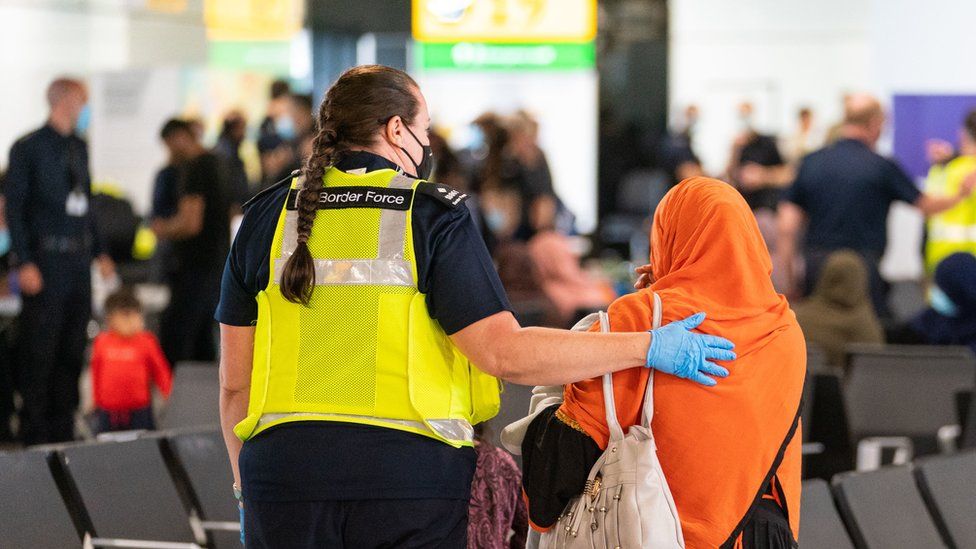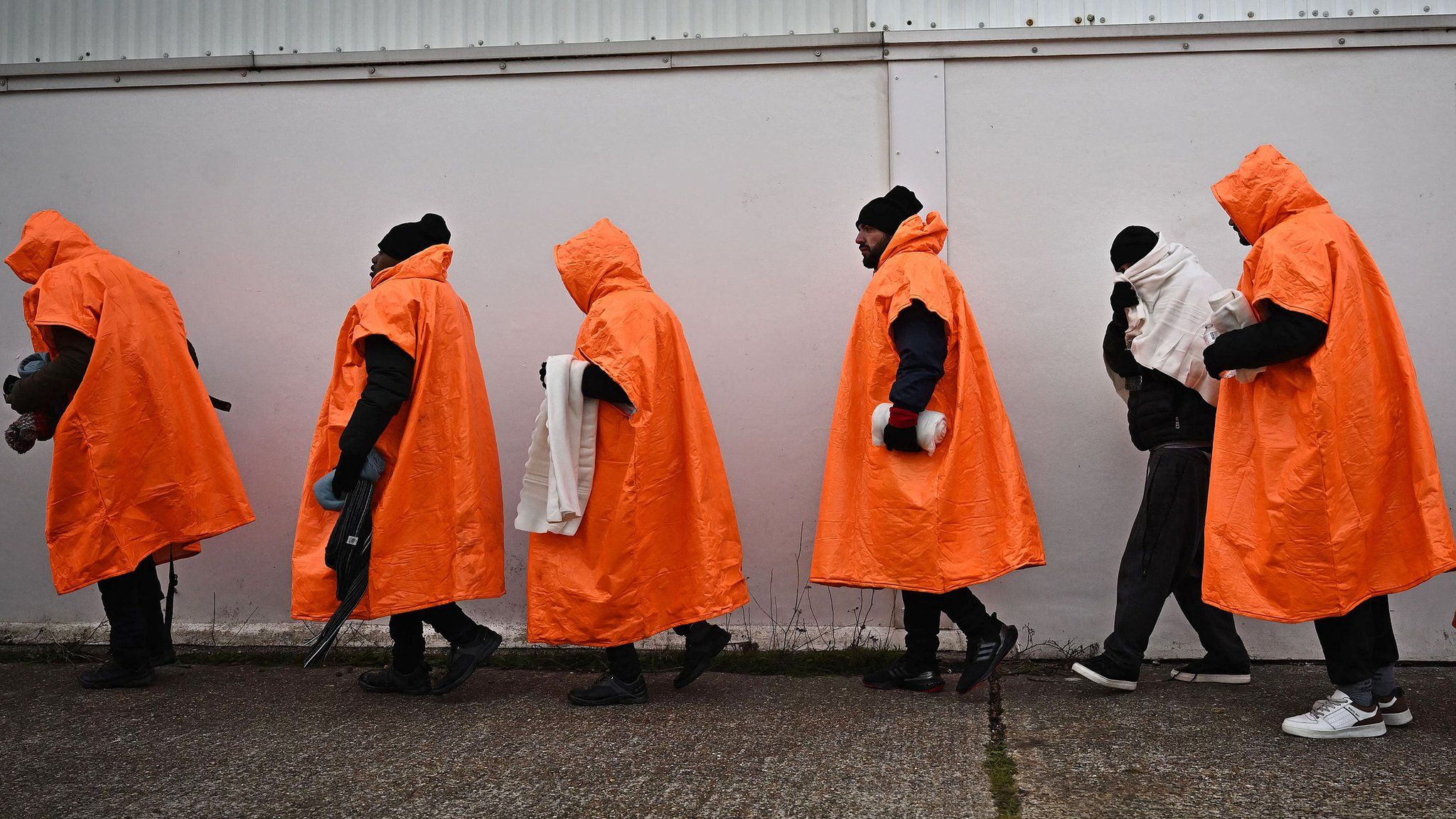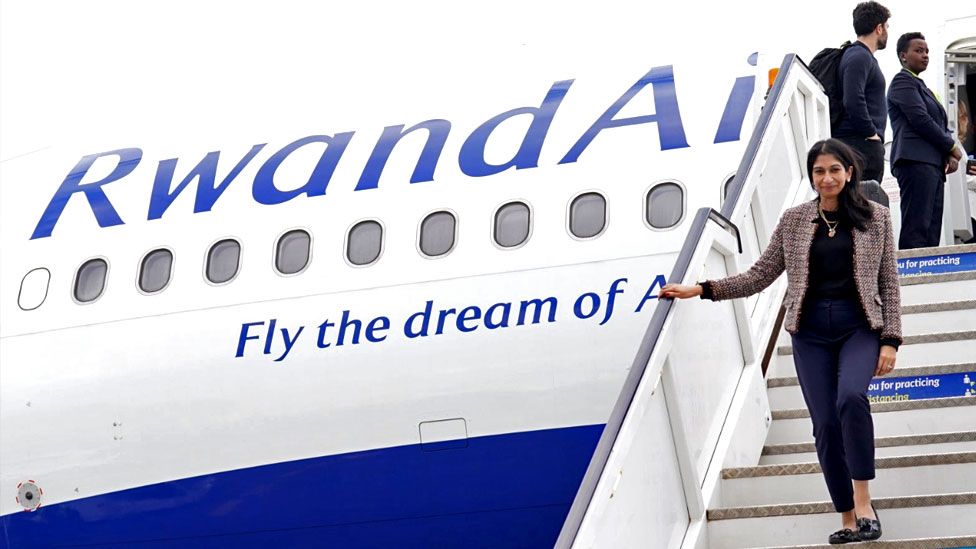Government to close 50 migrant hotels

The government is set to confirm plans to end the use of 50 hotels to house migrants by January.
In March, the BBC learned around 400 hotels were being used to house record numbers of asylum seekers.
On Tuesday, Immigration Minister Robert Jenrick will announce plans to start terminating hotel contracts that are costing the taxpayer £8m a day.
Ministers have frequently criticised the cost, promising to reduce the government’s reliance on hotels.
- Migrant hotel costs rise to £8m a day, new figures show
- Asylum backlog reaches record high, figures show
- How is the UK stopping Channel crossings?
The use of hotels has increased exponentially as the number of people claiming asylum in the UK has increased.
Under the Immigration and Asylum Act 1999, the Home Office has an obligation to house asylum seekers, who would otherwise be destitute, whilst their claim is being processed.
In August, the number of asylum seekers having their application processed reached a record high of 175,000 people.
In December 2022, Prime Minister Rishi Sunak set a target of clearing the so-called legacy backlog by the end of this year. Since then the government has doubled the number of people processing asylum applications to 2,500.
Labour have called for 1,000 more caseworkers to be hired to clear the asylum backlog.
Peter Walsh, a researcher at Oxford University’s Migration Observatory, told the BBC that while the legacy backlog – applications made before the end of June 2022 – had fallen, this had been offset by new applications.
He questioned where asylum seekers would be housed given the total backlog of cases had remained largely stagnant since last year.
Earlier this year, local councils raised concern that some Afghan families were facing homelessness after being told by the government to move out of hotels.
Room sharing
Some hotels have stopped housing migrants in recent weeks, including around Northampton and Kettering – potential target areas for Labour at the next general election.
Others are thought to only have a small number of migrants left in them.
Some migrants have also been moved on the Bibby Stockholm barge in an attempt to reduce the hotel bill.
The vessel, which has capacity for up to 500 men awaiting the outcome of asylum applications, was evacuated in August after Legionella bacteria was found in the water supply.
Ministers hope to use further barges to house migrants in the coming months.
In recent months, hotels housing asylum seekers were targeted by demonstrations which sometimes turned violent.
In a bid to reduce the amount spent on hotels, the Home Office has, this year, implemented Project Maximise which aims to increase the numbers who can stay in hotels by adding more beds to rooms.
The government says that it ensures rooms are of an “appropriate size” and that asylum seekers are not asked to share a room with someone of a different sex.
It says that room sharing is not optional, but people are encouraged to share with friends where possible.
In 2022, small boat arrivals across the English Channel accounted for about 45% of asylum applications made in the UK.
Mr Sunak has made cutting the numbers coming to the UK illegally one of his key priorities.
According to the latest figures, the number of small boat arrivals so far this year is 26,501, down from 37,578 by this time last year – a reduction of 30%.

How many asylum seekers are living in hotels and where are they based?
- At the end of June 2023 there were 50,546 asylum seekers living in hotels in the UK
- This is a 10% increase compared with the end of 2022, when there were 45,775 people living in hotels
- In March 2023, government sources told the BBC there were 395 hotels being used for this purpose
- The majority of them – 363 – were in England, 20 in Northern Ireland, 10 in Scotland and two in Wales
- Between April 2022 and March 2023, the government spent about £2.3bn on hotel accommodation

Under a government plan announced in April 2022, some asylum seekers would be sent to Rwanda to claim asylum there.
Ministers hope this will act as a deterrent, reducing the number of people crossing the Channel to the UK in small boats.
The legality of the scheme is currently being considered by the Supreme Court, after the Court of Appeal overturned an earlier High Court ruling that the plan was lawful.
Mr Sunak has made cutting the numbers coming to the UK illegally one of his key priorities.
Related Topics
- Home Office
- Refugees and asylum seekers
- Rishi Sunak
- Europe migrant crisis
- Migration
-
Migrant hotel costs rise to £8m a day, new figures show
-
19 September

-
-
How is the UK stopping Channel crossings?
-
15 August

-
-
Why does the UK want to send asylum seekers to Rwanda?
-
11 October

-
Published at Tue, 24 Oct 2023 10:05:44 +0000
